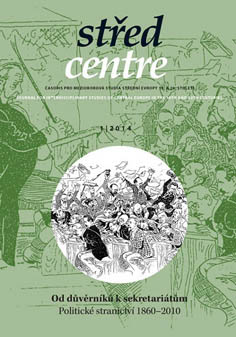“Post-Liberalism”, Anti-Clericalism And Yugoslav Nationalism. Slovene Progressive Political Camp in the Interwar Period and Contemporary Czech politic
“Post-Liberalism”, Anti-Clericalism And Yugoslav Nationalism. Slovene Progressive Political Camp in the Interwar Period and Contemporary Czech politic
Author(s): Oskar MulejSubject(s): History
Published by: AV ČR - Akademie věd České republiky - Masarykův ústav
Keywords: Political parties; Slovenia; Yugoslavia; Liberalism; Progressive camp; Nationalism; Yugoslavism
Summary/Abstract: The article examines the Slovene “progressive” political parties, treated as the interwar heirs to the 19th century national liberal traditions, and puts forward references to similar parties from the Czech political context. It demonstrates how the dominant position of political Catholicism within the Slovene political landscape also largely determined the ideological profile and political behavior of the main opposing camp. Pronounced “anti-clerical” orientation was thus essential for Slovene (post-)liberals, marking an important difference to their counterparts in the more secularized Czech context. On the other hand the appeal to the national idea remained central for both the Slovene and the Czech interwar national liberal heirs. The specifics of progressives’ national politics are discussed in the second section, where it is indicated that the complexities of their Yugoslavist course, being based not merely on pragmatic considerations, had mostly different underpinnings than the Czechoslovakist conceptions had in the Czech (post-)liberal politics.
Journal: Střed. Časopis pro mezioborová studia Střední Evropy 19. a 20. století
- Issue Year: 6/2014
- Issue No: 1
- Page Range: 65-93
- Page Count: 29
- Language: English

